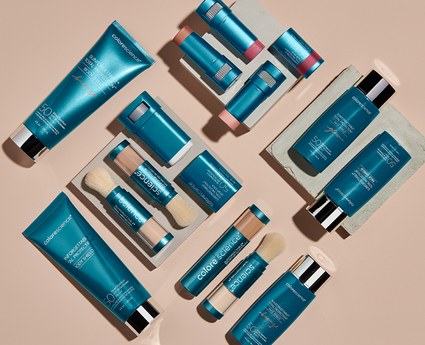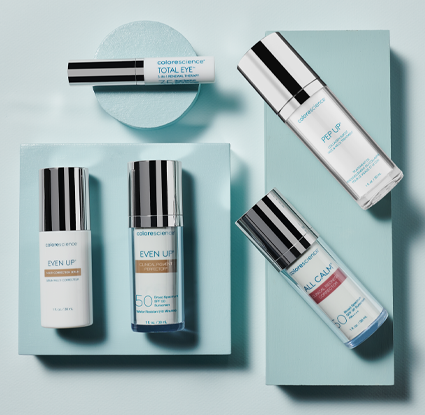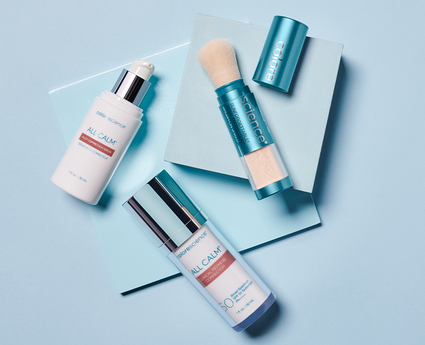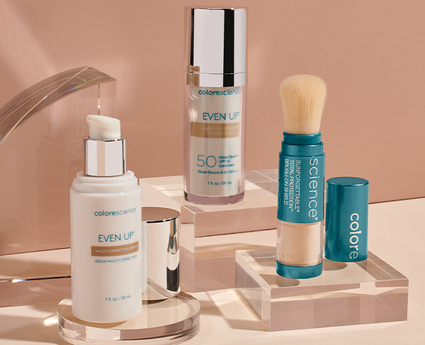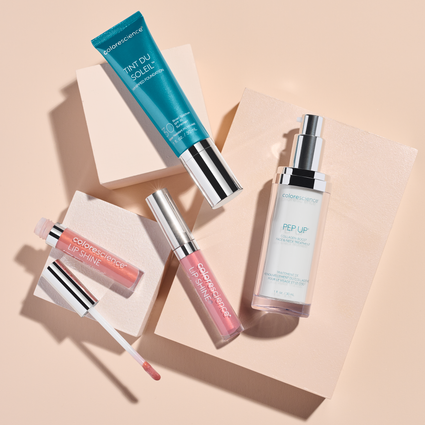Your Guide to Skincare for Oily Skin
If you have oily skin, you might be wondering how you can take proper care of it. With the right routine and treatments for oily skin, you can reduce your chances of developing both short-term and long-term skin problems.
However, if you’re just getting started, or are temporarily experiencing oily skin, it’s difficult to know where to start. How do you know what the best skincare is for oily skin? We can help you get on the right track.
Use this guide to learn more about how to take care of your complexion and establish the best skincare routine for oily skin. We’ll give you recommendations for your routine, provide tips for how to find the right products to use, and more.
- How Do You Know If You Have Oily Skin?
- 5-Step Skincare Routine for Oily Skin
- What Skincare Products Are Good for Oily Skin?
How Do You Know If You Have Oily Skin?

Everyone's skin is a bit different, but usually skin types fall into one of three categories: dry, oily, or combination skin. But how do you figure out if you’re someone with oily skin? There are several signs that could indicate that you have skin that is naturally oily, including:
- Larger Pores: If you have extra oil on your face, there’s a chance that it is coming from larger pores. In particular, you may notice that you have larger pores in your T-zone. This includes your forehead, chin, and nose.
- More Breakouts: If your skin naturally produces more oil, your pores will likely be clogged more often. As a result, you may notice more breakouts as well. You might even to be able to actually feel your skin is congested.
- Your Face Always Shines: If your skin is oily, you may notice that your face shines a lot as well. After you take a shower or clean your face, your skin might still have a sheen to it.
- Makeup Doesn’t Stay On: For those with oily skin, makeup can break down faster. This means it might not stay on well or start to run throughout the day.
- You Leave an Oil Trail: If your skin is oily, you may feel like you leave an oil trail wherever you go. What this means is that you may notice more oil on your clothing and phone or computer. You may also notice that your sheets get oily very quickly.
These are just a few of the most common signs that could indicate that you have oily skin. If you think you might have oily skin, you might now be wondering what steps you should take next. We can give you some tips for your skincare routine, so you can properly care for your skin type and keep your complexion as healthy as possible.
5-Step Skincare Routine for Oily Skin
No matter what skin type you have, the importance of skin care cannot be overstated. If you want to establish the best skincare routine for oily skin, here are some steps you can follow:
1. Wash Your Face
If you want to prevent breakouts from happening, it’s important to wash your face consistently and thoroughly. To properly wash your face, you want to:
- Use lukewarm water. If the water is too hot, it could burn your skin, and if the water is too cold, it could close up your pores, making it difficult for you to clean your face properly.
- Use a gentle cleanser. You don’t want to use a face wash with alcohol in it because it can dry out your skin or cause irritation.
2. Pat Dry
Don’t roughly dry your face, this could cause irritation and inflammation. Inflammation can lead to breakouts. This is particularly important if you have sensitive skin.
Simply pat your face dry with a soft towel when you’re finished washing.
3. Use Your Toner
After you are done drying your face, apply your toner. Toner is important because it helps remove oil and, in some cases, can even include ingredients that help soothe irritated skin and help your complexion look more radiant.
When you apply your toner, make sure you are gentle. You don't want to be too firm when you put toner on, or you could irritate your skin.
4. Apply Any Skin Treatments
If you have any additional skin treatments you want to apply, now is the time to do so. For example, if you are in the middle of a breakout, you might be interested in salicylic acid, which can help reduce the appearance of acne.
Or, if you have rosacea, you may want to apply a serum that helps calm the skin and reduce redness.
5. Moisturize
Even if your skin is oily, you still need to moisturize it. Moisturizer is important because it can help you regulate oil production. If you don’t moisturize, your body may think that your skin is dry, which might result in an increase in the amount of oil it produces as a result.
That said, you may want to opt for a light moisturizer instead of a heavier formula.

With the above steps, you’re on your way to better managing oily skin. However, depending on other aspects of your skin—such as eczema and other conditions—you may need a specialized skincare routine.
That’s why it’s always a good idea to speak with a dermatologist if you’re dealing with skin concerns that you don’t know how to handle effectively on your own.
Nighttime Routine for Oily Skin
Skincare routines aren’t just for the morning. Before you go to bed at night, it’s important to, at the very least, wash your face and remove all the buildup from the day. This is especially true for those who are more prone to breakouts.
Additionally, if you have oily skin, you may leave an oil trail on your sheets, which can make you uncomfortable while also increasing your chances of developing a breakout.

If you have any skin treatments you use, you might want to apply them again before you go to bed at night. Before doing so, just make sure these products are okay to use twice a day. Some may only suggest applying once a day or even a few times a week because of their ingredients.
What Skincare Products Are Good for Oily Skin?
So what do you need to be using on your face if you have oily skin? Let’s go over some of the best skincare products for oily skin, so you can make sure to properly care for your complexion and prevent oily skin when possible.

It is important to always wear sunscreen when you go outside. Without sunscreen, you’re not only putting your skin under duress and risking developing skin cancer, but it can contribute to making your skin even more oily. That said, not all sunscreens are good for oily skin. You’ll need one that’s non-comedogenic—meaning it doesn’t clog your pores. Try a mineral-based sunscreen, such as the Sunforgettable Total Protection Face Shield.
Above and beyond sun protection, you want to use treatments that cater to your specific skin needs. For example, if you struggle with redness and irritation, you want something that provides relief. Our All Calm® Sensitive Skin Regimen neutralizes redness while also hydrating and restoring skin—it’s also safe for sensitive skin.
And finally, there’s makeup. When it comes to foundation for oily skin, again, you want to look for something that’s non-comedogenic and won’t contribute to increasing oil production.
With these recommendations in mind, you can create a skincare routine for oily skin that both meets your needs and keeps your complexion looking its best.
Is There Anything You Should Avoid?
When you’re looking for products for oily skin, make sure you stay away from anything considered occlusive. For example, you don't want to apply petroleum jelly, which can clog your pores and lead to a breakout. You should also try to stay away from alcohol-based products, as they could irritate your skin and contribute to a breakout.
Finally, stay away from anything that is a rough, physical scrub. If you need to be forceful when you rub it into your skin, you do not want to use it on your face. It could make oil production worse, contributing to a greasy feeling on the surface.
When in doubt, always double-check the ingredients!
Caring for Oily Skin Doesn’t Have to Be Stressful
If you have oily skin, it’s easy to get frustrated and feel self-conscious. You may feel like you are having a difficult time finding a routine that works for you, but with the tips in this guide, you should be in a better position to care for your skin. When it comes to skincare for oily skin, remember, you need to wash your skin regularly, moisturize even if it feels counterintuitive, and use products that cater to your skin type.
When building the best skincare routine for oily skin, consider Colorescience. Our skin treatments are made with safe ingredients that are designed to be gentle on skin and target the conditions you need help managing. Shop our oily skin care products now to find the right treatments for you.

